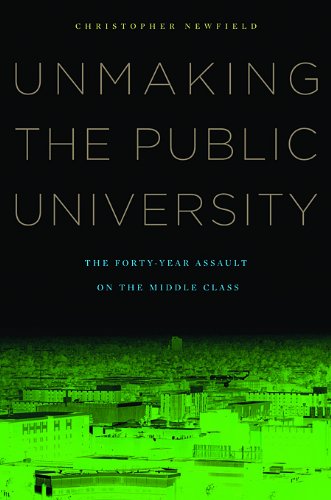 The RiCES group are delighted to welcome Chris Newfield, Professor of Literature and American Studies at the University of California at Santa Barbara.
The RiCES group are delighted to welcome Chris Newfield, Professor of Literature and American Studies at the University of California at Santa Barbara.
Monday 19th October 2015, 3.30-5pm. Business and Law BL1104.
This talk offers a brief history of faculty governance in the U.S. as defined over the past hundred years by the American Association of University Professors. My premise is that the conditions of the post-war model of shared governance are gone. At one time, growth and the passivity of outside interests enabled administrative neutralism, in which they could concentrate on teaching and research. Administrations have in recent decades become much more active shapers of academic priorities and also control contacts between the university and external interests. While faculty critiques of administrative overreach, the distorting effects of audit culture, etc. are vital, the paper will argue that faculty have fallen into a “depressive position” that enables negative trends. The talk is designed to foster discussion of US/UK/EU similarities and differences and desirable faculty initiatives.
—
Christopher Newfield is professor of literature and American Studies at the University of California at Santa Barbara. He brings an interdisciplinary background to the analysis of a range of topics in American Studies, innovation theory, and “critical university studies,” a field which he helped to found. Chris’ books include Mapping Multiculturalism (edited with Avery Gordon), The Emerson Effect: Individualism and Submission in America (Chicago, 1996), Ivy and Industry: Business and the Making of the American University, 1880-1980 (Duke, 2003), and Unmaking the Public University: The Forty Year Assault on the Middle Class (Harvard, 2008). He blogs on higher education funding and policy at Remaking the University, the Huffington Post, and the Chronicle of Higher Education, and is completing a book called Lowered Education: What to Do About Our Downsized Future.